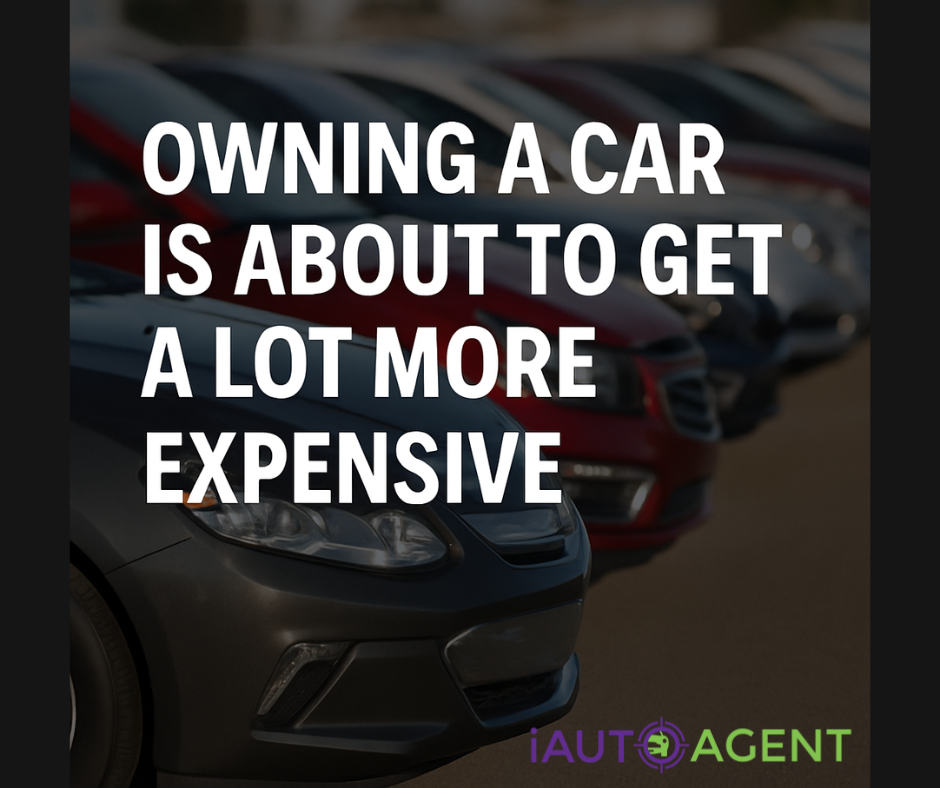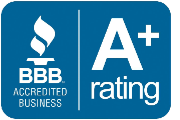
Why Owning a Car Is About to Get a Lot More Expensive (And What You Can Do About It)
by Brie Delos Reyes || April 28, 2025In today's already expensive vehicle market, American car owners are about to face another financial challenge — and it's all thanks to new auto tariffs.
If you're planning to buy, repair, or maintain a car, it's crucial to understand why car ownership costs are rising — and how these new tariffs could impact your budget. Staying informed about these trends is essential for making smart automotive decisions.
How Auto Tariffs Are Driving Up Car Ownership Costs
At its core, a tariff is a tax placed on imported goods. While tariffs aim to give domestic manufacturers an advantage by making foreign goods more expensive, the reality is that consumers often end up paying higher prices.
We’ve seen this before. For example, after President Donald Trump imposed 20%-50% tariffs on imported washing machines in 2018, the price of washers surged by 12%. Surprisingly, dryers (which weren't tariffed) also rose by 12%, according to a 2020 report from the American Economic Review.
Now, the automotive industry is poised for a similar increase in costs.
New Auto Tariffs Set to Increase Car Costs in 2025
Beginning May 3, 2025, a new round of 25% tariffs on select auto parts will take effect. Although 50% of auto parts imports are protected under the United States-Mexico-Canada Agreement (USMCA), the remaining half — particularly high-tech components like copper, ceramics, glass, and plastics — will be subjected to higher costs.
According to Mitchell International, a leader in auto repair data analytics, essential vehicle components, especially those related to advanced driver-assistance systems (ADAS), are expected to become significantly more expensive.
Key Auto Parts Impacted by New Tariffs:
-
Electronic systems
-
Vehicle safety modules
-
Imported aluminum auto parts
Aluminum is especially critical, with nearly 47% of automotive parts containing imported aluminum. With tariffs applied, car owners will see noticeable price increases across repairs and maintenance.
How New Tariffs Will Increase Car Repair Costs
If you're involved in a car accident or need vehicle repairs, brace yourself for higher repair bills. Here's what repair cost increases are projected to look like:
| Repair Type | Estimated Cost Increase |
|---|---|
| Steel damage repairs | +$20.27 per claim |
| Aluminum damage repairs | +$20.94 per claim |
| Electronics & safety repairs | +$47.61 per claim |
(Source: Mitchell International)
Even minor collisions could lead to hundreds of dollars in extra expenses over time, especially considering modern vehicles' reliance on expensive electronic and aluminum components.
The Domino Effect on Car Maintenance and Repairs
Even car parts not directly impacted by tariffs, like sheet metal, are seeing rising costs. As certain parts become more expensive, related parts and services follow suit — a domino effect throughout the automotive supply chain.
In short, whether you're replacing a sensor, repairing a bumper, or upgrading safety technology, you're likely to pay more — even if the part itself isn't tariffed.
As Ryan Mandel from Mitchell International points out, these hidden costs are absorbed into the final prices consumers pay at dealerships and auto repair shops.
Smart Ways Car Owners Can Save Money Amid Rising Costs
While you can't avoid tariffs, there are several strategies you can use to mitigate their financial impact:
1. Prioritize Preventative Car Maintenance
Regular maintenance like oil changes, tire rotations, and brake inspections can prevent minor issues from escalating into major, costly repairs involving tariff-affected parts.
2. Invest in an Extended Car Warranty
Extended warranties cover major repairs that could otherwise cost you thousands, particularly for electronics and aluminum parts hit hardest by tariffs.
3. Choose Vehicles with Readily Available Domestic Parts
When buying a new or used car — especially if you're looking for "selling fleet vehicles" or "pre owned van locating Affton" — prioritize brands and models with strong domestic parts availability to minimize future repair costs.
4. Drive Safely and Minimize Accidents
Defensive driving not only keeps you safer but also helps you avoid expensive, tariff-inflated repair bills.
Final Thoughts on Rising Car Costs
Tariffs are fundamentally reshaping the cost of owning a car in America. Whether you're buying a new vehicle, maintaining an older one, or "selling to fleets," be prepared for rising expenses in the months ahead.
Understanding the hidden drivers of these price increases can empower you to make smarter financial decisions and safeguard your wallet.
Stay informed, stay proactive, and you can save hundreds (if not thousands) in the years to come.
Protect Your Vehicle and Your Wallet with an Extended Warranty
With auto repair costs climbing, there’s never been a better time to protect yourself from unexpected expenses. An extended warranty covers costly repairs and shields you from tariff-driven price hikes.
Purchase an extended warranty with iAutoAgent today — and drive with confidence knowing you're fully covered. Read real iAutoAgent reviews to see why customers trust us.








